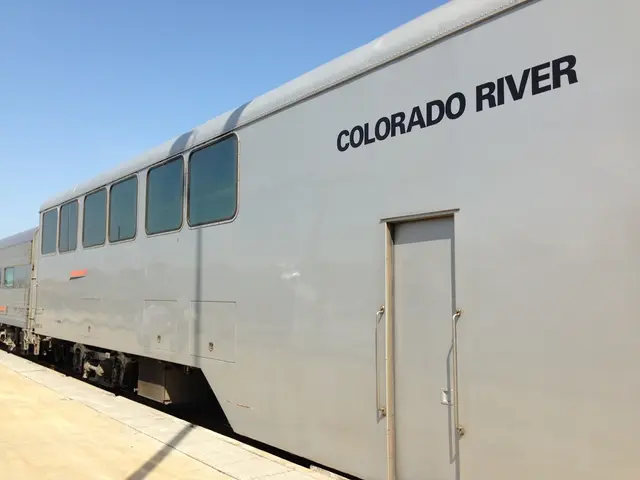Elderly Individual Eager to Pass Away in North Korea, South Korean Authorities Prevent Departure
95-Year-Old Ex-North Korean Soldier's Bid to Return Home Denied
Ahn Hak-sop, a 95-year-old man who spent over four decades imprisoned in South Korea for refusing to renounce his political beliefs, publicly declared his intention to return to North Korea by crossing the heavily militarized inter-Korean border. However, his latest attempt to return was denied by South Korean authorities.
Born in 1930 on Ganghwa Island, off Korea's western coast, during Japan's colonial rule of the Korean Peninsula, Ahn enlisted with North Korea's People's Army during the Korean War and served in the intelligence department. After the war, he was captured and imprisoned in the South.
Ahn's doormat is a US flag, a symbol of his lifelong resistance to the American occupation of South Korea. The walls of his modest home in Yonggang-ri, barely a mile from the North Korean border he dreams of crossing, are covered with faded photographs and North Korean posters, mementos of an ideology that has defined his existence.
Ahn alleges he endured brutal punishments, including beatings and exposure to freezing water during his imprisonment in South Korea. Despite this, he has never wavered in his belief that South Korea remains a colony under American influence.
In 2000, Ahn was offered the chance to return to North Korea but chose to stay in South Korea, stating his "mission" was unfinished. The rejection was crushing for Ahn, but he has continued his campaign for repatriation.
On Wednesday, Ahn attempted to cross the Unification Bridge, but officials blocked his passage, citing national security law and the absence of any agreement with Pyongyang to facilitate his return. After being denied permission at the border, Ahn hobbled into a waiting ambulance and was taken away.
South Korea generally regards North Korean defectors and prisoners as individuals who are to be integrated into South Korean society rather than repatriated. The government’s official stance emphasizes support and resettlement, without provisions for voluntary return to the North, especially through unauthorized border crossings. As of August 2025, South Korea's policies do not officially support the repatriation of long-term North Korean prisoners, including former soldiers like Ahn Hak-sop.
The security and political risks surrounding inter-Korean movement remain significant, and repatriation attempts may face legal and practical obstacles from South Korean authorities. North Korea halted all communications with South Korea in 2023, making it tougher for Seoul to discuss Ahn and other prisoners' repatriation.
Despite the challenges, Ahn's dying wish is to be buried in North Korea. His case serves as a poignant reminder of the divided nation's complex history and the human cost of the ongoing conflict.
[1] Source: The Guardian, 2025.
Read also:
- United States tariffs pose a threat to India, necessitating the recruitment of adept negotiators or strategists, similar to those who had influenced Trump's decisions.
- Weekly happenings in the German Federal Parliament (Bundestag)
- Southwest region's most popular posts, accompanied by an inquiry:
- Discussion between Putin and Trump in Alaska could potentially overshadow Ukraine's concerns








